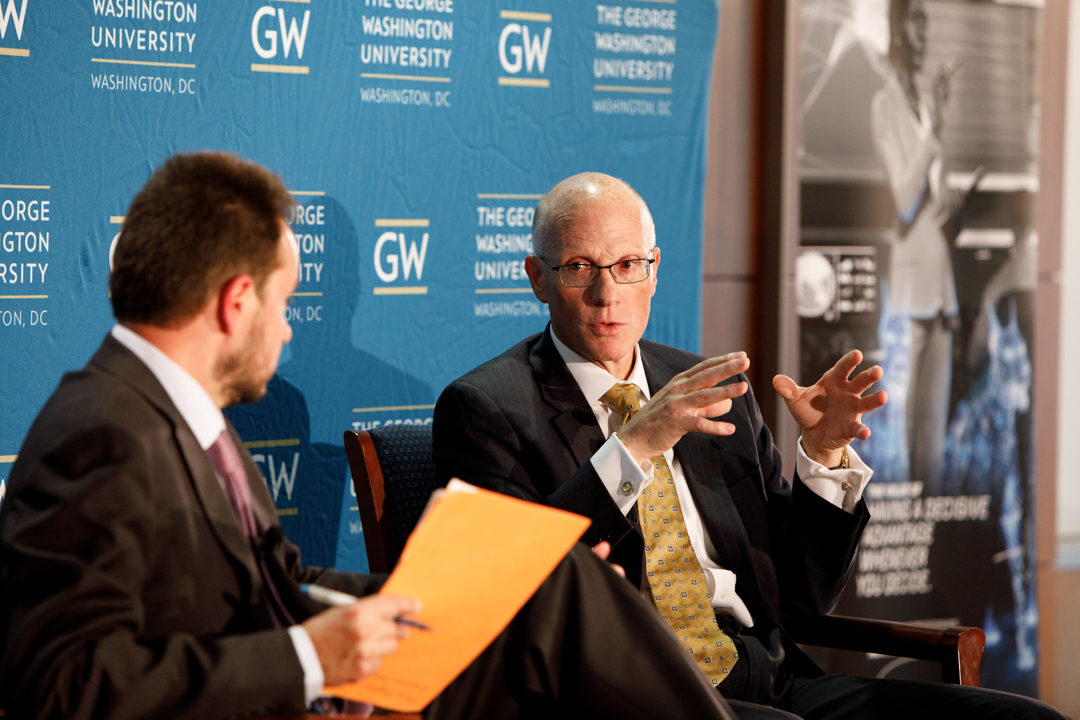By Ruth Steinhardt
The Institute for Information Infrastructure Protection (I3P) brought Paul Timmers, former director of digital society, trust and cyber security for the European Union, to the George Washington University Thursday for a summit, “Cybersecurity Policy in the European Union: Implications for Global IT Transformation.” After delivering a keynote at the National Press Club, Dr. Timmers returned to GW for a luncheon with graduate students focusing on cyber security.
Besides answering questions on his own experience as a high-level policymaker in transnational information infrastructure, Dr. Timmers engaged the seven students from the Elliott School of International Affairs and the School of Engineering and Applied Science on fundamental questions: What constitutes “critical” cyber infrastructure? Is it just government websites? Online payment platforms? What about search engines? Social networks?
“This is a debatable area,” Dr. Timmers said. But eventually, especially after reviewing incidents where information shared on social media affected financial systems, Dr. Timmer and his team decided that “social networks are part of the critical infrastructure.”
The group also discussed the nitty-gritty of information sharing across national boundaries, a topic in which some master’s degree students present were interested as they began to develop capstone projects for the Elliott School’s international affairs program.
“The luncheon with Dr. Timmers provided GW students with the opportunity for an in-depth discussion with one of the most prominent figures in global cybersecurity policy,” said Diana Burley, executive director and chair of the I3P and professor of human and organizational learning at GW’s Graduate School of Education and Human Development. “Not only did they have the chance to hear from him, but they also were able to share and receive feedback on their own research interests. Paul remarked on their insightful comments and he complimented their grasp of the issues. They made a great impression on him.”



